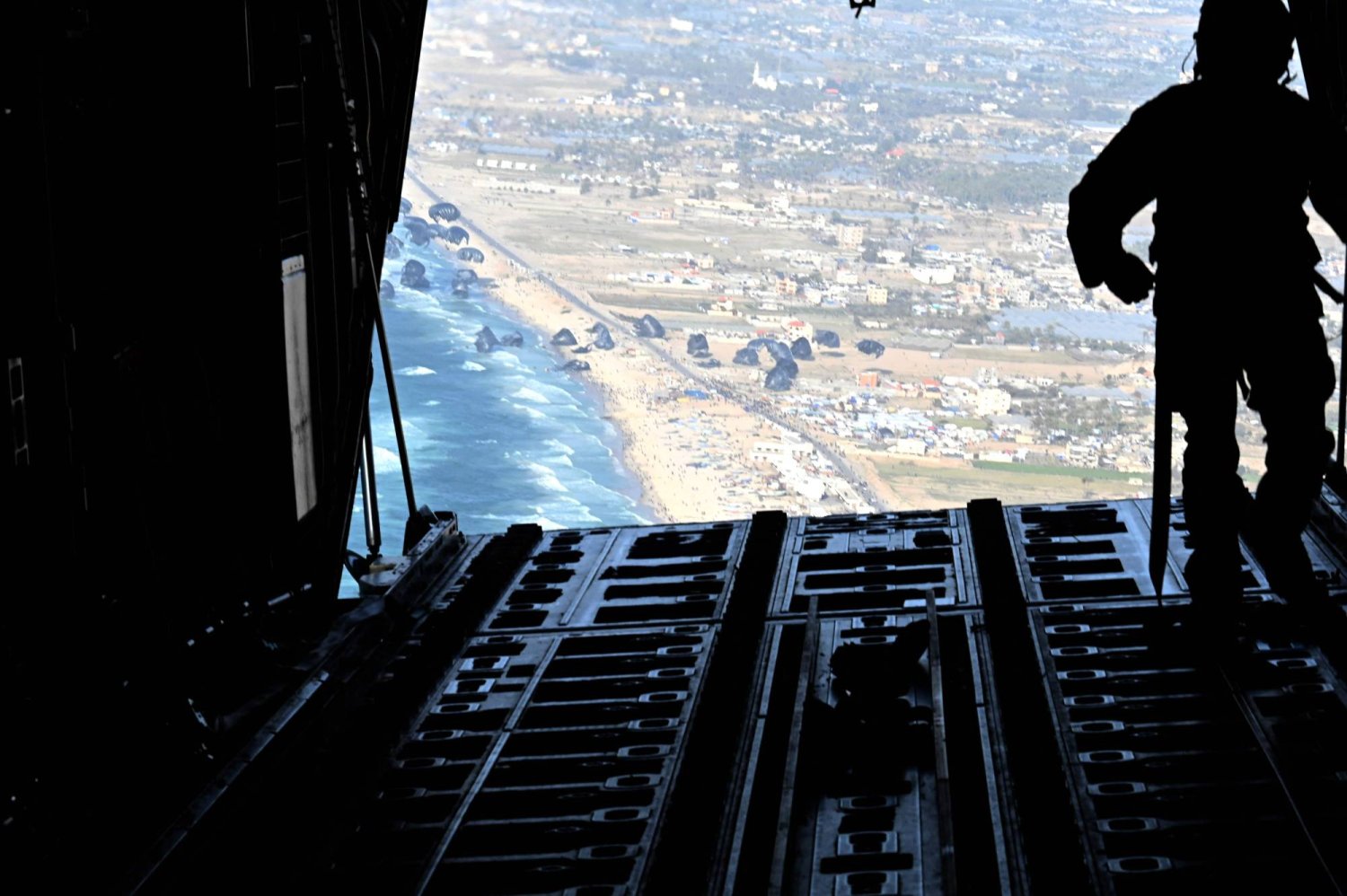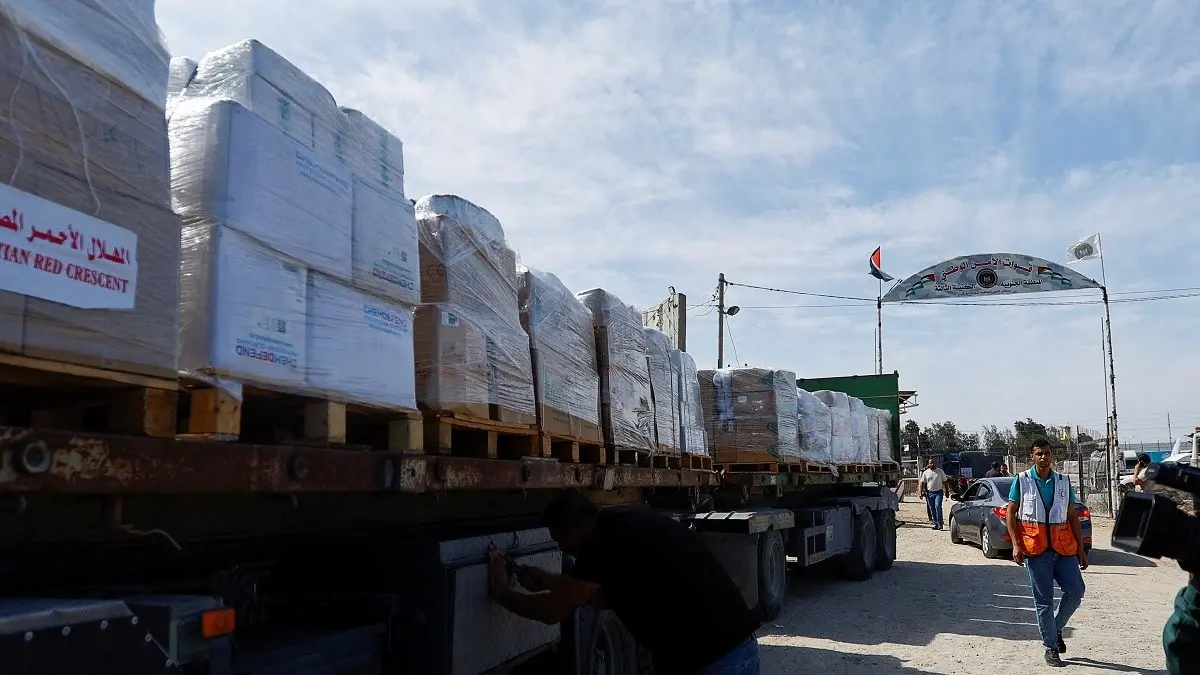The United Nations has underscored the significance of broad-scale aid distribution into Gaza, emphasizing the necessity of additional entry points for humanitarian supplies.
Stephane Dujarric, a U.N. spokesperson, acknowledged the potential benefits of alternative delivery methods, such as seaports and airdrops, while emphasizing the efficiency of land routes in terms of cost and volume.
The UNRWA has previously warned of a looming famine crisis affecting a quarter of Gaza’s population, stressing the urgency of bolstering aid access.

Despite ongoing challenges, including reduced aid deliveries and safety concerns, international efforts remain committed to addressing Gaza’s humanitarian plight. While the U.S., Jordan, and France have conducted airdrops, Israel has facilitated aid deliveries, albeit amid operational pauses and logistical hurdles.
The UN Office for the Coordination of Humanitarian Affairs reported limitations on aid missions, particularly in northern Gaza, citing operational constraints and Israeli facilitation issues.

As efforts continue to mitigate the crisis, Israel reaffirms its commitment to improving Gaza’s humanitarian situation, emphasizing that aid restrictions are contingent upon the capacity of international agencies.
However, the conflict’s toll persists, with casualties mounting and ongoing hostilities exacerbating the region’s dire circumstances. Despite these challenges, international stakeholders remain resolute in their pursuit of comprehensive aid delivery solutions to address Gaza’s urgent needs.





